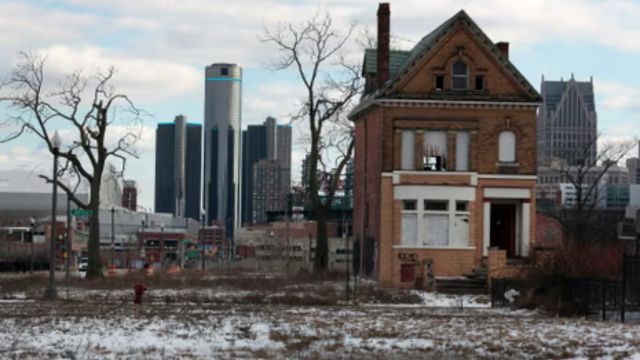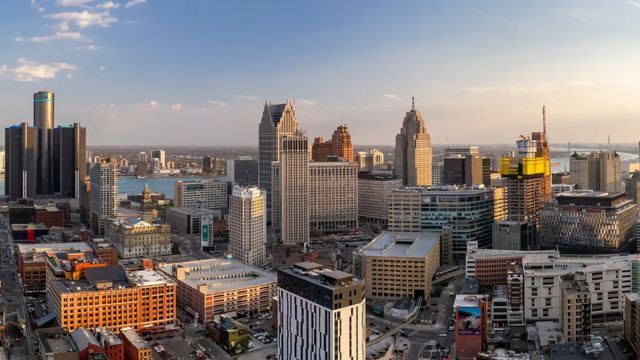This City Has Been Named the Poorest City in Detroit, Michigan
Detroit is a city in Michigan that has different districts and neighborhoods, but it does not have more than one city within its borders. But, I can provide you specifics on some of the communities or areas that have historically experienced socioeconomic difficulties if you’re looking for information about some of Detroit’s economically disadvantaged or destitute areas.
It’s critical to understand that, despite potential economic difficulties, these regions are also home to resilient communities that are constantly working to improve their lot in life and bring about constructive change for the betterment of their citizens.
5 the Poorest City in Detroit, Michigan
These neighborhoods are representative of certain areas of Detroit where economic hardship has traditionally affected people’s ability to make a living and their quality of life. Governmental and community organizations work tirelessly to address these problems and improve these areas. These are the following city of the poorest in Detroit. Such as:
1. Brightmoor
Northwest Detroit neighborhood Brightmoor has traditionally struggled economically, with high rates of poverty, crime, and problems with abandoned buildings.
2. Jefferson-Chalmers
This neighborhood, which is located along the Detroit River in eastern Detroit, has experienced economic collapse over the years, leading to issues with poverty and unemployment.
3. Delray

Southwest Detroit’s Delray has seen severe economic setbacks as a result of shifting industries and infrastructural improvements. Residents have been impacted by problems like poverty, pollution, and restricted access to resources.
4. Osborn
Osborn, a neighborhood on Detroit’s northeast side, has seen difficulties with poverty, underinvestment, and high crime rates, all of which hurt the community’s standard of living.
5. Warrendale
There have been economic difficulties in this part of western Detroit, resulting in high rates of poverty and restricted access to basic amenities and resources.
They do this by implementing community development projects, job creation programs, and revitalization programs that enhance living conditions and promote economic stability.
What is the Best Way to Reduce Poverty in Detroit, Michigan?
Detroit, as a booming manufacturing center, has long struggled with poverty and inequality. A diverse strategy that includes a range of programs, laws, and community-driven initiatives is needed to address and reduce poverty in the city. Sustainable progress toward improving communities and generating possibilities for prosperity can be made by concentrating on a few important areas.
1. Workforce Development and Job Creation
It is essential to promote employment creation through public-private partnerships and investments in sectors such as sustainable manufacturing, healthcare, and technology.
Residents can obtain higher-paying job prospects by enrolling in workforce development programs that are specifically designed to meet the needs of the community and provide them with the skills required for these expanding areas.
2. Education and Skill Development
It is imperative to make investments in education, ranging from early childhood to adult learning. By improving digital literacy, providing accessible vocational training, and guaranteeing high-quality education, people can break the cycle of poverty by becoming more employable and gaining skills that are necessary in today’s workforce.
3. Initiatives for Cheap Housing

It is crucial to put laws and initiatives into place to solve the shortage of affordable housing. Financial difficulties for low-income families can be lessened by supporting programs that provide affordable housing options and helping residents become homeowners or renters.
4. Building Infrastructure and Getting Services
It is imperative to upgrade the infrastructure in underprivileged areas, including community centers, dependable public transit, and access to medical facilities. Reducing the distance between residents and necessary services can improve the quality of life and prospects for growth.
5. Support for Small Businesses and Entrepreneurship
Economic growth is promoted by supporting entrepreneurship and small enterprises. In particular in underprivileged areas, offering tools, financial support, and coaching to budding entrepreneurs can boost local economies and generate employment opportunities.
6. Empowerment and Community Participation
Collaboration and long-lasting change are promoted through empowering community-based groups and involving residents in decision-making processes. Communities are strengthened when grassroots projects are supported and civic engagement is encouraged, ensuring that programs meet the requirements of the local populace.
7. Public safety and the reduction of crime
Improving public safety and addressing crime rates are essential to reducing poverty. Safer communities that encourage economic growth can be achieved through the use of community police, funding for crime prevention initiatives, and assistance for the rehabilitation of ex-offenders.
8. Collaborations & Partnerships
Government agencies, corporations, nonprofits, and community organizations must work together. The impact of programs aimed at reducing poverty can be increased by forming alliances that pool resources and knowledge.
Conclusion
Detroit’s poverty must be reduced via a comprehensive and well-executed strategy. A persistent dedication to these tactics can bring about long-lasting change, even though development could be slow. It is imperative to prioritize these efforts in consultation with stakeholders and people to guarantee fair growth and opportunities for all Detroit residents, eventually creating a more prosperous and inclusive city for future generations.
